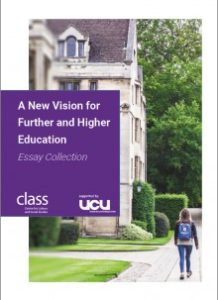Working with Inny Accioly (Fluminense Federal University, Rio de Janeiro, Brazil) and Krystian Szadkowski (Adam Mickiewicz University in Poznań, Poland), I have a contract with Palgrave Macmillan for an International Handbook of Marxism and Education. Our working proposal is appended below. We hope for a draft to be submitted in mid-2023.
Overview
The Handbook to Marxism and Education is an international and interdisciplinary volume, which provides a thorough and precise engagement with emergent developments in Marxist theory in both the global South and North. Drawing on the work of authoritative scholars and practitioners, the Companion explicitly shows how these developments enable a rich historical and material understanding of the full range of education sectors and contexts. In this, it will develop a dialectical understanding of the interactions between the following.
- The importance of Marx’s dialectical method in critiquing education.
- Transnational and national governance, regulation and funding of education.
- Histories and geographies of educational development and change, for instance in relation to corporate forms, the binaries of public/private education, issues of marketisation and commodification.
- The structures, cultures and practices of formal and informal educational organisations.
- The lived experiences of education by centring a range of intersectional analyses.
- The educational role of new social and political movements, like decolonising, indigenous rights, Black Lives Matter and Rhodes must Fall.
- The web of life and ecological readings of education.
This work proceeds in a spirit of openness and dialogue within and between various conceptions and traditions of Marxism, and brings those conceptions into dialogue with their critics and other anti-capitalist traditions. The Handbook contributes to the development of Marxist analyses that push beyond established limits, by engaging with fresh perspectives and views, which disrupt established perspectives as a movement of dignity. Following the introduction, the work is divided into three parts.
- ‘Marxist modes and characteristics of analysis in education’, which provides a broad conceptual and historical context
- ‘Emerging currents in Marxism and education‘, which tracks the trajectories of emerging and developing issues in education.
- ‘Marxism, education and alternative conceptualisations of life’, which examines in detail the possibility to describe alternative educational futures.
The Handbook is designed to be an emerging, deliberative and dialogic guide to the relationship between Marxism and education.
- The Handbook focuses upon the intersection of the plurality of Marxist traditions, with both the full range of transnational educational contexts, and the historical/material development of categorical analyses in relation to emerging social issues. In this way, it mirrors the objectives of relevant companions to Marx’s Capital, which seek to interpret from specified positions, and enable the reader to generate analytical tools for themselves in their own context.
- The Handbook enables material and historical analyses of emerging currents that are shaping education globally, including how capitalism is re-engineering learning environments, teaching practices, and student engagement and learning, alongside the national and transnational governance, regulation and funding of educational institutions.
- The Handbook provides a rich, conceptual and transnational engagement with emerging work on alternative perspectives, including: Buen Vivir, Critical Environmental Education, “Environmental Justice and the web of life; critical university studies; movements for institutional abolition; critical or radical pedagogy; and social justice, including #BLM, decolonising, indigeneity and critical feminism.
NB The intention is to connect with a full range of emergent issues, rather than develop a standard genealogy or archaeology of Marxist categories as they apply to educational contexts. Thus, there is a deep engagement with issues of social justice, for instance, in relation to decolonising, indigeneity, queer education and intersectionality. There is a desire to draw out the links between structures, cultures and practices of education through a Marxist lens, and to bring these into conversation with emergent issues in relation to identity, environment, social reproduction and so on.
NB there is dialogue and negotiation with authors to be undertaken, including through the process of drafting chapters. This will undoubtedly impact the ways in which the volume is structured over-time, and we will keep this under review.
Finally, and crucially, the Handbook will recognise and work with genealogies and archeologies of work that has been undertaken in relation to Marxism and Education. These genealogies, and the authors who are so central to them, will be referenced and referred to within the Handbook. However, we do not see the Handbook working within/from those genealogies and archeologies. We do not wish to maintain established or dominant perceptions and conceptualisations of Marxism and education, rather we wish to disrupt those and engage established positions in a dialogue with emerging issues (for instance, intersectionality, decolonising, the web of life). We also wish to give a range of authors, from contexts previously made marginal, new spaces for voicing and weaving.
As a result, we look forward to disrupting particular positions and opening-up/out the possibility of new research and new voices shaping the direction for the field. In any authentic and meaningful, pedagogic and educational engagement with a range of intersecting, global crises, new voices and positions are required. Other ways of knowing and imagining and being in the world have never been more urgent.
